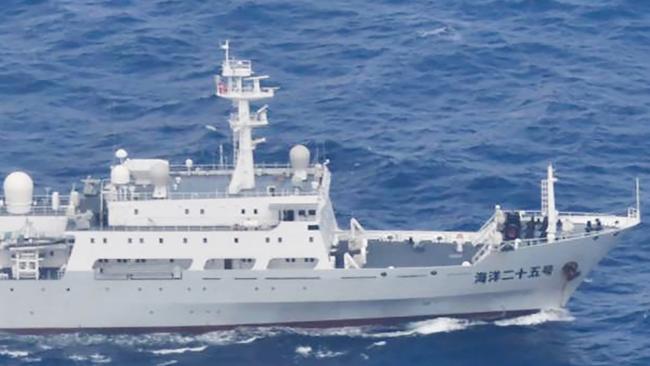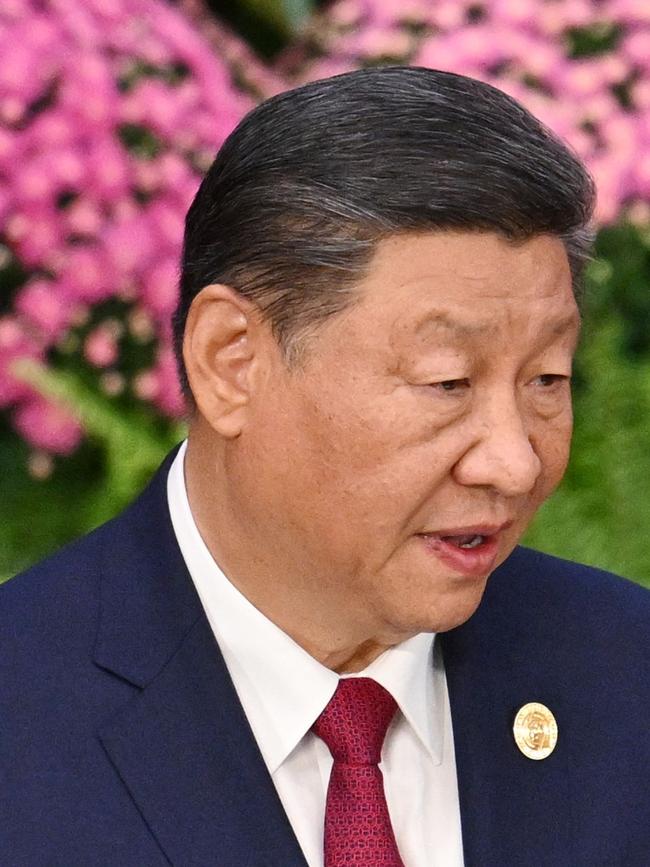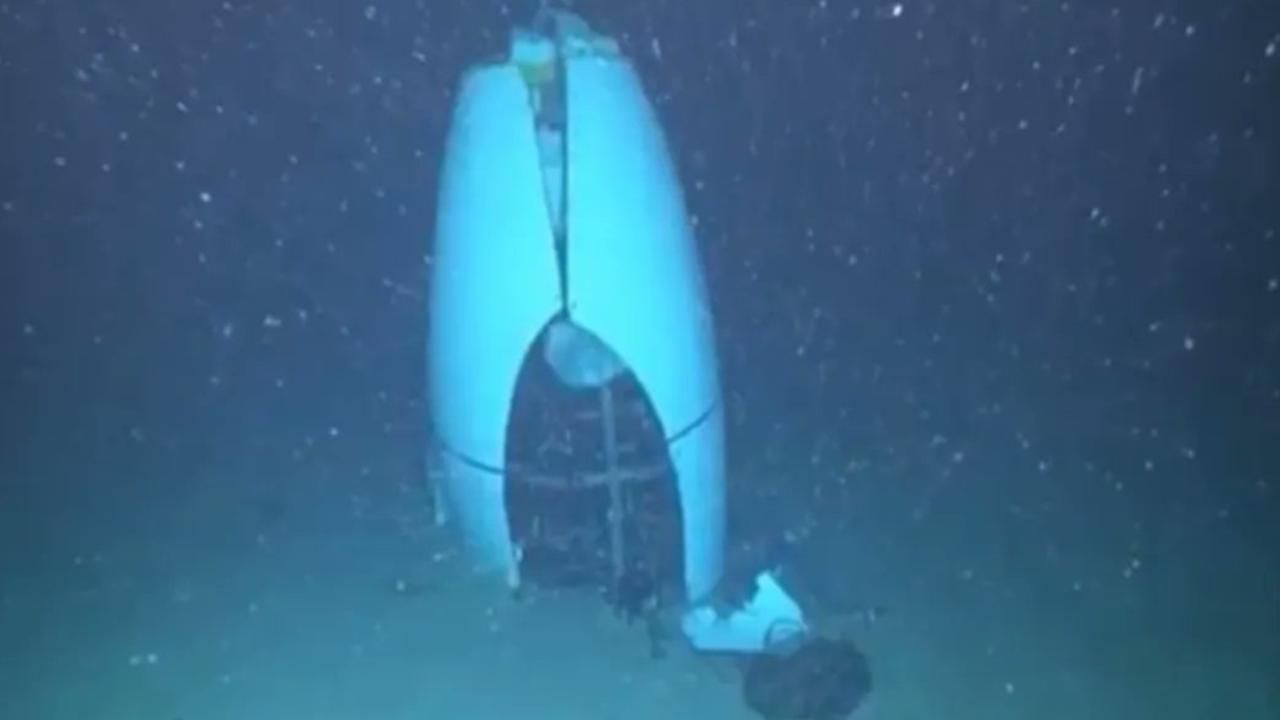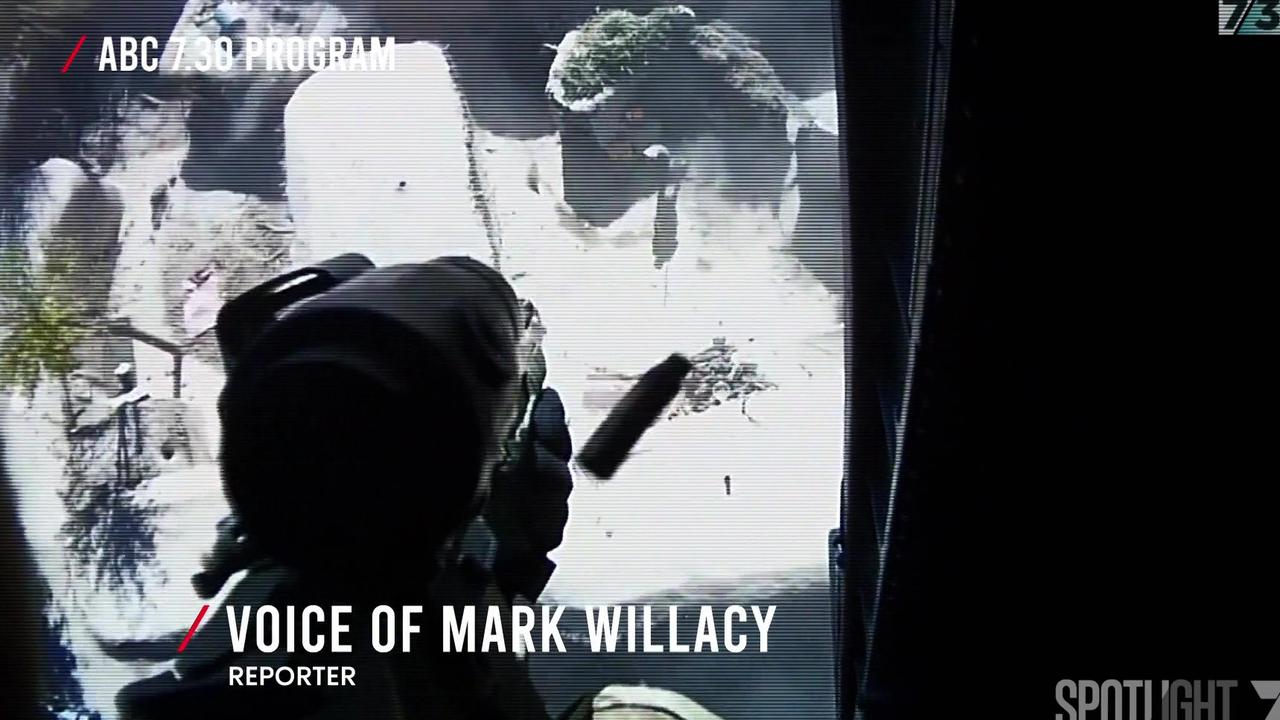Sign world has ‘entered a new era of crisis’ as tensions explode in Asia Pacific
One of Australia’s neighbours and key allies has issued a chilling warning as tensions within the region explode to alarming new levels.

Innovation
Don't miss out on the headlines from Innovation. Followed categories will be added to My News.
Japan warns the world has “entered a new era of crisis”. And it has reached out to Australia for help in standing against its aggressive neighbours – China, North Korea and Russia.
Japanese Foreign Minister Yoko Kamikawa and Defence Minister Minoru Kihara met with Australia’s Foreign Minister Penny Wong and Defence Minister Richard Marles this week.
Greater security co-operation was at the top of the agenda.
But the summit was conducted against a background of real tension.
Tokyo had formally protested with its Chinese embassy last weekend for an incursion by a Chinese survey ship within its 22km territorial waters.
This came shortly after a Chinese Y-9 reconnaissance aircraft made a similar incursion into sovereign airspace last week.
At the same time, China maintained its near-permanent encirclement of Taiwan with hundreds of combat aircraft and dozens of warships practising the enforcement of a blockade.
14 PLA aircraft, 7 PLAN vessels and 2 official ships operating around Taiwan were detected up until 6 a.m. (UTC+8) today. 13 of the aircraft crossed the median line and entered Taiwan's northern, southwestern and eastern ADIZ. We have monitored the situation and responded. pic.twitter.com/v60Nij8gZl
— 國防部 Ministry of National Defense, R.O.C. 🇹🇼 (@MoNDefense) September 5, 2024
But the real drama was playing out in the Philippines’ exclusive economic zone (EEZ) within the Spratly Islands. An armed Chinese Coast Guard vessel repeatedly rammed a Japanese-built Philippines Coast Guard ship in an effort to seize control of a remote coral atoll.
Defence Minister Marles acknowledged Japan’s tenuous position, saying it was “very much on the front line” of international tensions.
That’s the sentiment expressed by a new Japanese Defence White Paper issued this week.
Minister Kihara states in the 2024 Defence of Japan report that he believes “the existing order” in the Western Pacific “is being seriously challenged”.
“Japan finds itself in the most severe and complex security environment of the post-war era,” he states.
The white paper asks for a record $A88 billion defence budget this year to pay for urgent upgrades.
His reasoning is blunt – “to prevent unilateral changes to the status quo by force”.
China has rapidly built up its military capabilities. And it’s exercising its new-found strength against its neighbours in the Himalayas, South China Sea, East China Sea and Pacific.
North Korea has achieved its goals of building nuclear warheads and ballistic missiles capable of carrying them.

Russia has been engaging in intensive military exercises in the region, including joint activities with China, even as it struggles to bring its invasion of Ukraine to a conclusion.
“No country can now protect her own security alone,” Kihara states.
“As challenges to the existing international order continue, it is critical for Japan to deepen co-operation and collaboration with our allies, like-minded countries, and other partners with whom Japan shares universal values and strategic interests.”
Growing alliance
Just as Beijing insists it has “historical” ownership of the entire South China Sea, it also lays claim to all the islands stretching between Taiwan and the southernmost Japanese home island of Kyushu.
The southernmost Senkaku island group has been the scene of increasing tension over the past decade, with Chinese fishing militia, coast guard and navy vessels establishing a near-permanent presence within its economic zone.

But recent Chinese activity has been closer to major population centres.
“We have shared very strong concern over these incidents and, for the East China Sea and South China Sea, any attempts to unilaterally change the status quo by force or by coercion, we have put forward our strong opposition,” Kihara said during a press conference during his Australian visit.
Marles said he and Wong “did express our support for Japanese sovereignty”.
“The countries of the region and indeed the world want to be in a world where disputes are resolved not by power and might but by reference to international law,” he added.
The ministers announced new moves to strengthen defence ties, including greater participation in each other’s major military exercises, exchanging military officers for familiarity training and shared access to training facilities.
#DefenseofJapan 2024 New Release!
— Japan Ministry of Defense/Self-Defense Forces (@ModJapan_en) September 3, 2024
Today, on September 3, English version of Defense of Japan 2024 (Annual White Paper) was released on MOD website.
Please check our website for further details!
â–¼Click belowhttps://t.co/eK6gooRT4Upic.twitter.com/t2hguRW6rF
This may include joint F-35 Stealth Fighter and amphibious unit deployment with Australia and the US in the Northern Territory and Queensland.
“This highlights Australia’s importance as a strategic location for Japan to disperse its mobile assets in case its own bases come under military threat,” says Australian Strategic Policy Institute (ASPI) analyst Euan Graham.
Beijing, however, has reacted with anger.

It accuses Japan of “militarism resurgence” and of having expansionist designs over Southeast Asia similar to those it had in the lead up to World War II.
Tokyo “continued to run wildly on the dangerous path of expanding military preparations,” the Communist Party-controlled Global Times quotes a defence spokesman as saying.
“This deserves high vigilance from neighbouring countries and the international community,” said Senior Colonel Wu Qian.
“We will never allow militarism to rise again.”
New world order
“China has never made any so-called military threats against any country, including Japan, and the development of the Chinese military is entirely for self-defence,” the dean of the Liaoning University Institute of American and East Asian Studies Lu Chao states.
It is Japan that is provoking China over ownership of the Senkaku and Ryukyu Islands.
It is Japan that is provoking China by supporting the Philippines’ presence in the Senkaku Islands.
It is Japan that is provoking China by pledging to help Taiwan if it is invaded.


“Hype of China’s growing military assertiveness by Japan is an excuse to expand its defence budget [and] is completely groundless … with the aim of creating tension and shifting the blame to China,” Lu states.
Global strategic analysts are increasingly concerned over the ever-escalating tensions between China and its neighbours.
They also question the resolve of the United States to enforce the United Nations Conventions on the Law of the Sea (UNCLOS).
“The consequences of a direct US-China conflict, either over Taiwan, the disputed shoals of the South China Sea or by sheer miscalculation, are unfathomable,” Daniel DePetris writes for the Lowy Institute.
“One war game conducted earlier in the year assessed that tens of thousands of US service members would be lost in addition to dozens of ships and hundreds of aircraft. The economic repercussions would be just as gargantuan, with perhaps as much as 10 per cent of global gross domestic product wiped out.”
Washington is beset by troubles.
It’s facing a divisive presidential election in November.
It’s supporting Ukraine to resist an attempted invasion by Russia.
It’s supporting Israel in its eternal wars in the Middle East.
As a result, the US navy has pulled its iconic nuclear-powered aircraft carrier battle groups out of the Pacific to reinforce these live-fire zones.
🇯🇵#IZUMO, #OONAMI and #P1 took part in EX with 🇦🇺#SYDNEY, 🇫🇷#BRETAGNE, 🇩🇪#BADENWÜRTTEMBERG, #FRANKFURTAMMAIN, 🇮🇹#CAVOUR, #ALPINO, and #MONTECUCCOLI. 🇯🇵🇦🇺🇮🇹🇩🇪🇫🇷 reaffirmed our close cooperation and international partnership.#FreeAndOpenIndoPacificpic.twitter.com/bUxBgAIQVw
— Japan Maritime Self-Defense Force (@jmsdf_pao_eng) August 31, 2024
“It seems that China believes it enjoys a certain amount of force overmatch and escalation dominance, so it is trying to make examples out of some countries that refuse to accept Chinese dominance in its near abroad,” Stanford University security analyst Ray Powell told Voice of America.
Beijing, however, insists that Japan is the threat.
“Bringing outside countries to the Asian Pacific region is Japan’s key military and diplomatic strategy in recent years,” Zie Ge writes for the People’s Liberation Army.
“With US backing and acquiescence, Japan has kept selecting partners from US allies, and agitated them to meddle in regional security affairs by establishing regular consultation mechanisms with them, signing bilateral military agreements, and organising multilateral exercises, all to serve its own strategic interests.”
Jamie Seidel is a freelance writer | @JamieSeidel
Originally published as Sign world has ‘entered a new era of crisis’ as tensions explode in Asia Pacific





